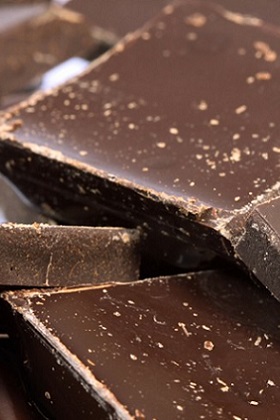From superfoods to super diets – Top 10 foods for a healthy diet
Media releaseDeakin University nutrition scientist Associate Professor Tim Crowe is on a mission to overhaul the term 'superfood' in favour of 'super diets' instead.
"The label 'superfood' is an over-used marketing tool that has no legal definition and certainly has no meaning among nutrition scientists," explains Tim.
Tim explains that there are literally thousands of natural chemicals in foods that affect our health.
"Rather than focus on the effect of a single nutrient or heavily marketed and hyped 'superfood', we should focus on the total effect of food to health."
"There's no such thing as a 'superfood'. We should be thinking 'super diets' instead."
Here's Tim's Top 10 list of staple foods that form the cornerstone of any super diet. These 10 foods are easily and cheaply found at the supermarket and have good evidence of real health benefits.
1. Cruciferous vegetables
There's a reason these guys are at the bottom of the healthy food pyramid! Cruciferous vegetables are part of the Brassica genus of plants which includes broccoli, cauliflower, turnips, Brussels sprouts, kale, bok choy, cabbage and radishes. They offer potent cancer protection as they inactivate cancer-causing molecules and act as antioxidants.
2. Oats
Oats are low in fat and a good source of protein and B-group vitamins. They are full of fibre, which keeps blood sugar and cholesterol levels under control. Oats also help to provide a feeling of 'fullness' after a meal.
3. Nuts and seeds
Nuts and seeds are an excellent source of protein, healthy fats, fibre, and vitamin E. Eating a handful of nuts each day is linked to a lower risk of heart disease and type 2 diabetes and can help manage weight. All nuts are of benefit so go for a variety that you like.
4. Tea
Taking a break for a cup of tea has enormous benefits. Tea is rich in flavonoids (a class of polyphenols that have antioxidant activity) and may slow cancer growth and lower heart disease. There is also some evidence of anti-depressant effects. Black and green tea are both good choices, though there is greater evidence that green tea can guard against heart disease. Tea is also a good source of water and definitely counts towards your water needs each day.
5. Berries
High in antioxidants and polyphenols and a good source of fibre, three servings of berries a week is ideal and has been linked with lower risk of heart attacks. Choose from blueberries, blackberries, cranberries, raspberries, strawberries, and even goji and acai berries for colour and variety.
6. Fish
We all know that fish is high in omega-3 fatty acids but did you know that the edible bones of fish are a good source of calcium? Good choices include salmon, herring, sardines and supplement capsules. Whole fish (not so much supplements) offers protection against heart disease, and is also linked to a benefit in rheumatoid arthritis, mental health issues such as depression and ADHD, and conditions such as dementia and Alzheimer's disease.
7. Dark chocolate
Dark chocolate contains typically 2 – 3 times more cocoa than milk chocolate, making it a rich source of potent antioxidants called flavanols. Clinical trials have shown that dark chocolate can lower blood pressure and the oxidation of the more harmful LDL-cholesterol, improve the action of insulin, and increase blood flow. The good news for chocoholics is that people who regularly consume foods containing cocoa have had lower rates of heart disease.
8. Soy
Soy is a high quality protein which has been found to lower LDL-cholesterol. It contains isoflavones which have weak estrogen activity. Soy is a much better option than isoflavone supplements. There is also some evidence that soy can lower breast cancer risk and relieve some post-menopausal symptoms.
9. Tomatoes
Tomatoes contain a powerful antioxidant called lycopene which is also found in red and orange coloured fruit and vegetables. Research suggests that lycopene may offer protection against prostate cancer. Cooking tomatoes with a small amount of olive oil makes the lycopene more available to the body.
10. Yoghurt
Yoghurt is a great source of calcium and beneficial probiotic bacteria. It is also low in fat and contains high quality protein. Be sure to check the label though, as 'reduced-fat' yoghurt may have more calories than regular yoghurt.
Associate Professor Tim Crowe is a nutrition academic within the School of Exercise and Nutrition Sciences at Deakin University and is also an Accredited Practising Dietitian. He teaches across the undergraduate and postgraduate programs in nutrition dietetics in the areas of nutritional physiology and biochemistry as well as the applied role of nutrition in disease prevention and management, particularly obesity, diabetes and cancer. He is actively involved in several areas of nutrition research including specialised nutrition in the prevention of surgical complications; malnutrition identification; and nutrition support in wound healing.
Share this story
 Good news for chocoholics - people who regularly consume foods containing cocoa have had lower rates of heart disease.
Good news for chocoholics - people who regularly consume foods containing cocoa have had lower rates of heart disease.
